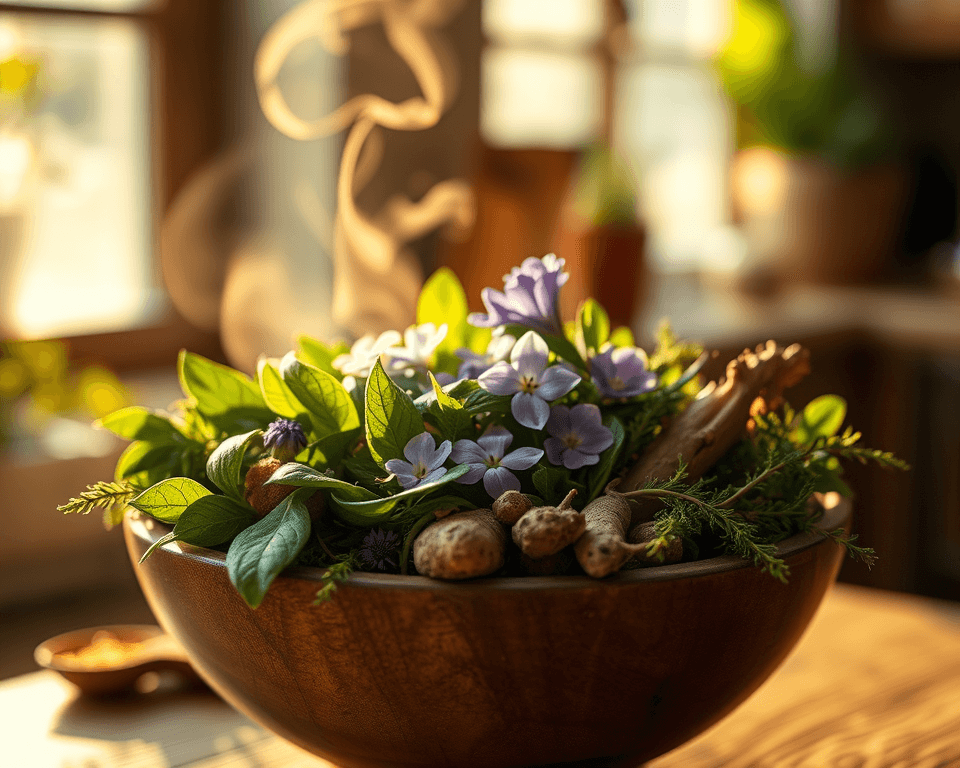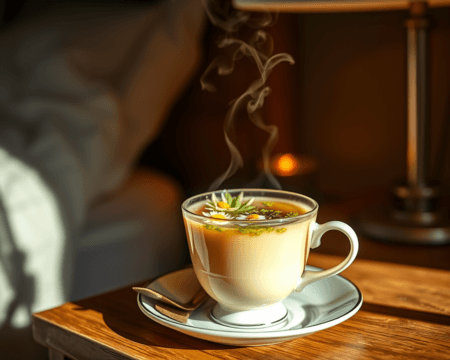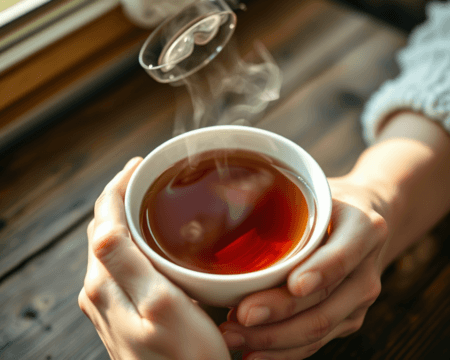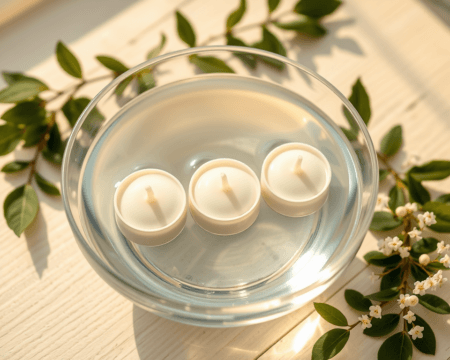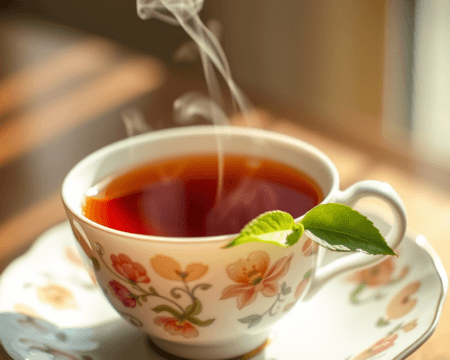If you’re on a journey to boost your fertility or simply want to enhance your reproductive health, you’re likely looking for effective, natural remedies. Enter herbal teas—nature’s little secrets packed with potential benefits for your reproductive system. Consider this your go-to guide on how to harness the power of herbal teas to support your fertility journey!
Key Takeaways
- Certain herbal teas can promote reproductive health and enhance fertility.
- Lifestyle factors like nutrition and stress management significantly affect fertility.
- Consult healthcare professionals before integrating herbal teas into your diet.
- Personalized testimonial stories shed light on real-world effectiveness.
Understanding Fertility: Key Concepts and Factors
Defining Fertility and Its Importance
Let’s break this down. Fertility isn’t just about making babies; it’s a complex dance of biological reproduction influenced by a plethora of factors. Your reproductive health is crucial not just for conception but for overall well-being. It encompasses everything from hormonal balance to the health of your reproductive organs. If you’re experiencing infertility, it can be a heavy load, igniting a drive towards fertility awareness.
For instance, did you know that fertility rates have fluctuated over the years? With more people delaying parenthood, understanding the underlying causes of fertility issues has never been more vital.
Lifestyle Factors Affecting Fertility
What’s fascinating is how much your lifestyle can impact your fertility. Think about it—nutrition plays a central role. A fertility-boosting diet isn’t just fanciful thinking; it’s backed by science. Combining a whole foods diet with regular exercise can have a major effect on your body’s ability to conceive. Stress management? Absolutely crucial! High stress levels can wreak havoc on your hormones, which aren’t exactly your buddies when it comes to ovulation.
Don’t overlook sleep hygiene and weight management either! A balanced approach to these lifestyle factors can be a game changer for fertility.
Herbal Teas and Their Potential Benefits for Fertility
An Overview of Herbal Teas Beneficial for Reproductive Health
Now, let’s talk about herbal teas! These aren’t just your average hot beverages; they’re herbal powerhouses packed with phytoestrogens and other compounds that can support reproductive health. Herbal remedies have been used for centuries, and fertility-enhancing herbs can be the natural supplements you didn’t even know you needed.
What’s on the menu? Everything from traditional fertility teas to modern herbal blends is making waves in holistic health circles. You might want to check out popular choices like red clover and raspberry leaf; they’re touted for their beneficial properties.
Tea Varieties and Their Specific Benefits
Now, let’s break down some superstar teas you should consider adding to your pantry:
- Red Clover Tea: This isn’t just for soothing your throat; it’s rich in phytoestrogens, which can help regulate hormonal levels in women.
- Nettle Tea: Don’t let its prickly name fool you! Nettle is like the nutritional champ of herbal teas. It’s packed with vitamins and minerals crucial for reproductive health. Pregnant? This tea can offer support during those early stages.
- Green Tea: The caffeine issue aside, when consumed in moderation, it’s loaded with antioxidants, offering a boost for reproductive health.
- Raspberry Leaf Tea: If you’re looking to balance your menstrual cycle, this tea can help. It’s also said to strength uterine walls and improve contractions during labor.
- Chamomile Tea: This calming tea can help with stress relief—a major player in fertility. Plus, its gentle sedative effects make it a great bedtime ritual.
Scientific Evidence Supporting Tea and Fertility
Key Research Studies and Findings
Let’s get into the nitty-gritty here—what does the science say? Numerous studies have explored the fertility outcomes associated with herbal tea consumption. While some studies show positive effects on reproductive health, others remind us to tread carefully and do our homework. For instance, certain herbal teas can interact with medications or affect hormonal balances—especially if you’re dealing with underlying fertility issues.
Evidence indicates that herbal supplements effectively support reproductive health, but the quality can vary significantly. Always look for clinical research that backs up these claims. It can be essential in making informed choices.
Expert Opinions on the Use of Herbal Teas
I’ve chatted with various holistic health experts, fertility specialists, and nutritionists. The consensus? Herbal teas can play a supportive role in a fertility diet but rely heavily on personalized approaches. Experts emphasize consulting healthcare professionals before making significant changes to your diet, especially if you’re trying to conceive.
Personal recommendations can go a long way, so make sure your source is reputable and tailored to your individual needs.
Practical Recommendations: How to Incorporate Herbal Teas into Your Diet
Choosing the Right Teas for Your Fertility Journey
So how do you choose which tea is right for you? Start with the basics—think about what your body needs and what goals you have. Not every herb will suit everyone, so it’s all about finding the right fit. When selecting fertility teas, balance flavor with functionality. Experiment with blends; maybe you’ll find magic in combining raspberry leaf with nettle.
Here are some general guidelines:
– Opt for organic teas whenever possible: Your body will thank you, and you’ll reduce exposure to pesticides.
– Mind how you brew: Steep your teas properly for maximum benefit—generally 5-10 minutes is a good rule of thumb.
– Integrate tea into your daily routines: Start your day with green tea or wind down with chamomile at night—find what resonates best with you.
User Testimonials and Personal Success Stories
Look, I can throw facts and stats at you all day, but nothing beats hearing from people who’ve been there. I’ve collected testimonials from individuals who attribute their improvements in reproductive health to integrating herbal teas into their diets. These personal accounts often speak to the supportive role of herbal teas alongside a holistic approach to lifestyle changes.
One story that stands out? A couple struggled for over a year with conception. After revamping her diet, incorporating herbal teas, and practicing stress management techniques, she reported surprising results just months later. Little nuggets like these remind us that everyone’s fertility journey can be different—what works wonders for one may not hit the mark for another.
Potential Side Effects and Contraindications of Herbal Teas
Recognizing Risks and Dangers of Certain Teas
Now, let’s talk about the elephant in the room—side effects. Just like anything else we consume, herbal teas can come with risks. Pay attention when trying something new. Some herbs can lead to complications if you’re pregnant or have specific medical conditions. For example, teas high in certain phytoestrogens could mess with hormonal balances, especially if overconsumed.
Always read labels carefully and monitor your body’s response when introducing new products. Stay informed about potential interactions—especially if you’re already on medication. Knowledge is power!
Consulting with Healthcare Professionals
Before you jump into the world of herbal teas, take a moment to consult with your healthcare provider. Whether you meet with a fertility specialist or a holistic health practitioner, their insights can help you create a customized plan tailored to your needs. They can advise you on safe herbal options and possibly recommend tests to pinpoint underlying issues affecting your fertility.
In the whirlwind of trying to get pregnant, don’t forget that professional input can steer you away from potential pitfalls and lead you toward a well-rounded strategy.
It’s never been easier to explore natural supplements and herbal teas in your fertility journey. By integrating knowledge with action, you can create a supportive environment for your reproductive health. Trust the process, listen to your body, and keep those herbal teas flowing!
Frequently Asked Questions
Can herbal teas improve fertility in both men and women?
Yes, some herbal teas, like red clover and nettle leaf, can support reproductive health in both men and women by balancing hormones and improving blood flow. However, the effects can vary, so it’s best to consult with a healthcare professional for personalized advice.
Are there any side effects of herbal teas for fertility?
While many herbal teas are generally safe, some can cause adverse effects or interact with medications. It’s important to research each herb, consult with a healthcare professional, and monitor your body’s response when incorporating new teas into your routine.
Which herbal teas are best for enhancing fertility?
Teas such as raspberry leaf, green tea, and chasteberry are often recommended to support fertility. Each tea has unique benefits, so consider your specific needs and health conditions when selecting the right herbal option.
How can lifestyle changes impact fertility alongside herbal teas?
Lifestyle factors like a balanced diet, regular exercise, and stress management play a crucial role in fertility. Combining nutritious foods and healthy habits with herbal teas can create a more holistic approach to enhancing reproductive health.
How long should I drink herbal teas to see results in my fertility?
The time it takes to notice improvements can vary widely among individuals. Generally, consistent consumption over a few months, combined with healthy lifestyle choices, may lead to observable benefits. Consult with a healthcare provider for a tailored timeline.
Are there any herbs to avoid for fertility?
Certain herbs, such as pennyroyal and blue cohosh, can be harmful and should be avoided when trying to conceive. Always check with a healthcare professional to identify any herbs that might not be suitable for your specific situation or health condition.
Do I need to follow any specific dosage instructions for herbal teas?
Yes, each herbal tea may have different recommended dosages. It’s advisable to follow package instructions, and ideally, consult with a healthcare provider to ensure you are consuming the right amount for your fertility goals.
Can I combine different herbal teas?
Combining different herbal teas can be beneficial, but it’s essential to research their interactions and effects. Some herbs may complement each other, while others could cause unwanted reactions. Always consult a healthcare professional before mixing.
Is there scientific research supporting the efficacy of herbal teas for fertility?
While anecdotal evidence and some studies suggest that herbal teas can support fertility, more robust and comprehensive research is needed. It’s vital to rely on credible sources and professional recommendations when considering herbal treatments.




